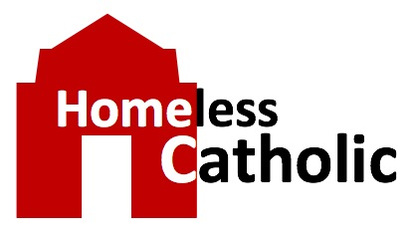The Right Question
Let's take an ordinary issue: A satisfactory tithe? Is it ten percent of net? Ten percent of gross? Ten percent after I have subtracted what I give to other charities? None of these is the right question.
Or another issue: Requirements to get to heaven? Do I regularly attend Mass? To I pray before meals and at bedtime? Do I observe Lenten regulations.
None of these is the right question.
Reflection - Questions
http://www.usccb.org/bible/readings/011817.cfm
Hebrews 7:1-3, 15-17
Mark 3:1-6
Asking questions is sometimes a way of getting information; but asking questions can also be a tricky business. Sometimes it may even be a trickster's business.
"Have you stopped beating your wife?
We all know what's wrong with this question. With an answer of either 'yes' or 'no' the responder commits to something he probably doesn't intend. There are all kinds of questionable questions. Some questions conceal a false dichotomy, such as the one above about wife beating. Others are formulated so as to assume the truth of an unknown. For example, to ask if Joe's tie is red presumes that Joe is actually wearing a tie. Pollsters and statisticians know well that truth and reality can be distorted by the way information is presented or by the questions used to obtain information.
Russia and the US were both engaged in a sports contest. The question was: How did each team do? The Russian newspaper reported that the Russians came in second. They also reported that the US team came in next to last. Both statements were true. But what was not reported was that the Russian and US teams were the only ones in the contest. Clearly, the reporting provided a distortion of the facts, yet the news accurately reported the results.
If a pollster asks people from the general population 'Do you think the pope is a good man?' and finds that eighty-five percent respond that they believe him to be a good man, that pollster would be distorting the facts if he concluded that eighty-five percent of the population support the pope.
However, just as a poorly formulated question can lead to misleading conclusions, a good question, one that is well formulated, can lead to the discovery of truth.
Jesus was a master at both asking and answering questions. This morning we find him asking what seems to be a very simple question: "Is it lawful to do good on the sabbath rather than to do evil, to save life rather than to destroy it?"
The circumstances that prompt his question are made clear in the story. The incident took place on the Sabbath when work was forbidden. Jesus went to the synagogue along with the other men of the community. In the synagogue was a man with a withered hand. The law considered healing to be work. The Pharisees were watching to see what Jesus would do. Jesus asks a question. The Pharisees remain silent.
Jesus does not ask the question which might be expected. He doesn't say "Does the Law allow me to heal someone on the Sabbath?" The answer to that question is presumably found in the Law: You can't perform work on the Sabbath. Healing is work. Therefore, you cannot heal someone on the Sabbath. The problem with such a question is that it assumes both premises to be true: "You can't perform work on the Sabbath." and "Healing is work." Is that really what God intended?
So Jesus doesn't ask that question. Instead, he goes to the heart of the matter; and the answer is not nearly as convoluted as the Pharisaic interpretation of the Law. "Is it lawful to do good on the sabbath rather than to do evil, to save life rather than to destroy it?" Jesus asks. A casual interpretation might assume that Jesus was just asking for information, though it might also appear that he was being a bit sarcastic. But there is more to it than that. His question changes the fundamentals of the issue at hand as well as any possible discussion which might follow. No longer is it a question of the Law; now it is a question of the good, how we identify it and what characterizes it.
The Pharisees in the story find themselves in a no-win situation. The choice Jesus offers is between doing good and doing evil and only one answer is possible. Further, since they don't want to discuss healing on those terms, they maintain their silence.
Now, my reflection began with the troubles of the Pharisees and the authenticity Jesus demonstrated in posing the question as he did. His framing of the issue is a masterful one, another example of his ingenuity in both asking and answering. If the question had been one of Law a vigorous discussion might have followed but it's doubtful if truth would have been revealed. So, there was the question that was expected but not asked and the question that was asked but was not expected. This led my thoughts to consider the importance of asking the right question in spiritual matters.
Let's take an ordinary issue: A satisfactory tithe? Is it ten percent of net? Ten percent of gross? Ten percent after I have subtracted what I give to other charities? Etc.
None of these is the right question.
Or another issue: Requirements to get to heaven? Do I regularly attend Mass? To I pray before meals and at bedtime? Do I observe Lenten regulations. Etc.
None of these is the right question.
Or still another: Being holy? Do I participate in parish activities? Do I assist the poor and suffering? Am I a 'good' person? Etc.
None of these is the right question.
Right now the question for me is: What do I need to ask myself in order to ask the right question regarding my spiritual life?

